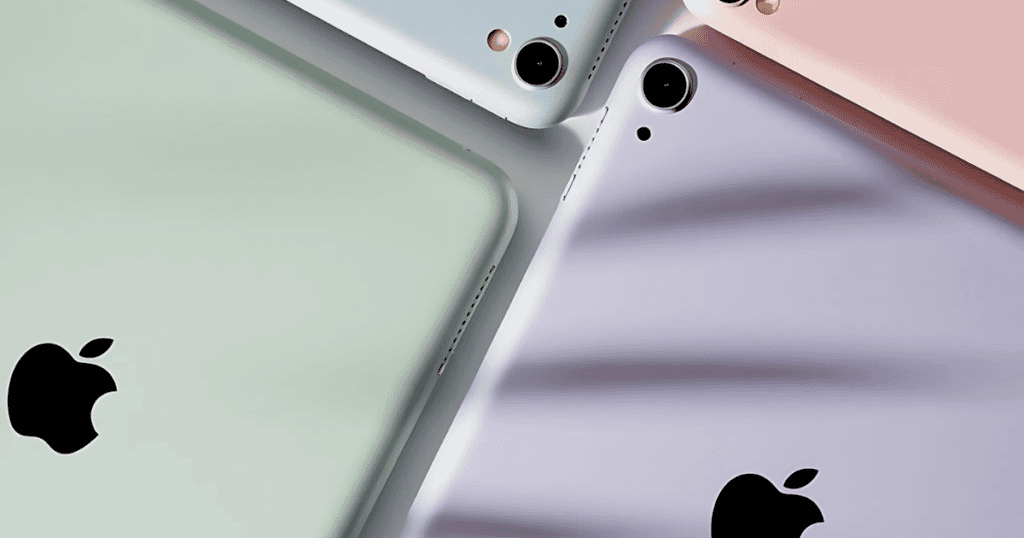In the ever-evolving landscape of Apple’s product offerings, the entry-level iPad is set to receive a significant upgrade with the addition of Apple Intelligence features in late 2025. This timeline, proposed by Bloomberg’s Mark Gurman in his latest Power On newsletter, hints at a strategic shift towards integrating advanced AI capabilities across Apple’s devices. As we explore the anticipated updates, it becomes clear that this development could dramatically enhance the user experience for a broader audience.
Anticipated Timeline for the Entry-Level iPad Update
According to Gurman, the iPhone SE is slated to gain Apple Intelligence in March 2025, setting the stage for the entry-level iPad to follow “later in the year.” With nearly every Apple device expected to support Apple Intelligence by 2026, this transition marks a pivotal moment for the company’s lineup. Notably, this update comes after a substantial gap, as the last refresh of the entry-level iPad occurred in October 2022. This delay in updating the budget-friendly iPad model could be attributed to the technical challenges of implementing Apple Intelligence in a device priced at $349. While Apple is known for pushing technological boundaries, integrating AI features into an affordable model presents unique obstacles.
Technical Upgrades: What to Expect
The current 10th-generation iPad, which sports an A14 chip first introduced in the iPhone 12, is becoming increasingly outdated. With Apple Intelligence in mind, the logical upgrade for the next iPad would involve more advanced chipsets. Here’s a look at the potential options:
- A16 Chip: Used in the iPhone 15, this would be a reasonable upgrade to bring the iPad up to speed with more recent devices.
- A17 Pro Chip or A18 Chip: If Apple aims to fully integrate Apple Intelligence, a more powerful chipset like the A17 Pro or even the upcoming A18 would be necessary. These chips would allow for the smooth functioning of AI-driven tasks, which are processor-intensive and require the latest in computational power.
This upgrade isn’t just about keeping pace with newer devices. The integration of AI features could redefine how users interact with their iPads, making the device more intuitive and capable in ways we haven’t yet fully experienced.
Implications of Apple Intelligence on the iPad Ecosystem
As Apple Intelligence becomes a standard across devices, from iPhones to iPads and even Macs, its influence on user experience will be profound. AI features have already demonstrated their potential in enhancing productivity, personalizing user interactions, and improving overall device functionality.
What Apple Intelligence Could Bring to the iPad:
- Smart Assistance: Advanced AI capabilities could power more efficient multitasking, help manage apps and files intelligently, and improve responsiveness to voice commands.
- Enhanced Learning and Accessibility: For educational purposes, the iPad could become an even more potent tool. AI could offer personalized learning experiences and assist users with accessibility needs in ways not currently possible.
- Creative Tools: AI-assisted creative applications, from image and video editing to design, could be integrated into the iPad’s already diverse suite of creative apps, providing users with advanced tools that are easy to use.
By 2026, Apple Intelligence may become the standard across Apple’s entire range of products, including its most affordable devices, signaling a broad democratization of cutting-edge AI technology.
Changes in the iPad Lineup: Recent Developments
In light of these upcoming innovations, Apple has made several recent adjustments to its iPad lineup. For instance, the company announced a new iPad mini with Apple Intelligence support, but notably, there has been no major refresh of the entry-level iPad.
Key recent changes include:
- Lowering the Price: Apple reduced the price of the existing iPad 10 model, making it more accessible to a wider range of consumers.
- Removal of the Charger in Europe: This decision aligns with broader industry trends toward reducing e-waste but is also a sign that Apple isn’t focusing on an imminent release for the next-generation iPad.
These moves suggest that the next major update for the entry-level iPad, likely the iPad 11, won’t occur until Apple’s planned AI integration is ready.
A Long-Awaited Update with Big Potential
The anticipated late 2025 release of the updated entry-level iPad could represent a significant moment for Apple, as it extends the capabilities of Apple Intelligence to its most affordable devices. While we wait for more details, it’s clear that this development could reshape the iPad’s role in the everyday lives of users, bringing high-end AI features to the masses.




